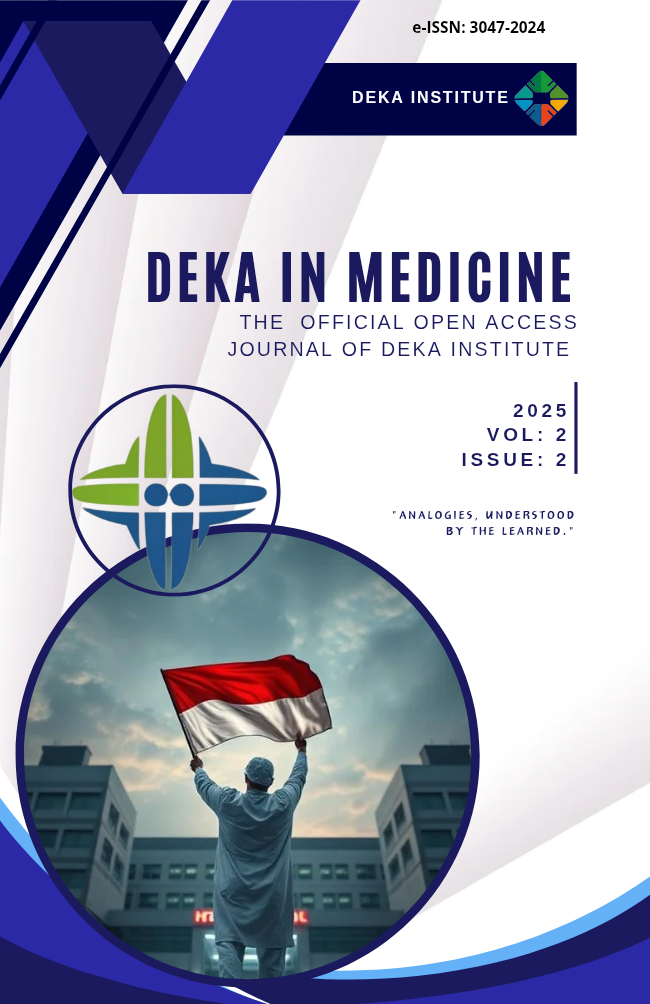Beyond the hype: Artificial intelligence at the service of clinical care
DOI:
https://doi.org/10.69863/dim.2025.e634Keywords:
Artificial intelligence, digital health transformation, patient monitoring, physician leadership, personalized careAbstract
Artificial intelligence (AI) has generated significant expectation in the healthcare industry, particularly as a transformative factor in diagnosis, treatment, and patient care. Although its implementation continues to evolve, the majority of current AI applications remain limited to administrative and non-clinical functions, such as chatbots, computerized scheduling, and electronic triage systems. For AI to have a transformative impact on clinical practice, clinicians with first-hand knowledge of patient care dynamics and healthcare systems' real-world demands must lead the deployment of AI. In cardiovascular medicine, AI can make a considerable impact by integrating data from diverse sources—like wearable sensors, laboratory tests, and patient-reported outcomes—to detect early clinical changes and enable personalized follow-up. General public use of wearable devices provides an opportunity for continuous monitoring of patients, if the data thus created is filtered and interpreted through a clinically sound framework. Such a transformation helps develop adaptive and efficient models of follow-up that not only optimize resource use but also improve quality of care. The active engagement of doctors as designers of medical technology is imperative to make sure that digitalization is kept patient-centric and not focused on system efficiency only. If well integrated, AI has the potential to augment clinical responsiveness, enhance the doctor–patient relationship, and help create a more efficient, sustainable, and human-oriented healthcare system.
References
1. Bajwa J, Munir U, Nori A, et al. Artificial intelligence in healthcare: transforming the practice of medicine. Future Healthc J 2021;8(2):e188-e194.doi: 10.7861/fhj.2021-0095. PMID: 34286183
2. Hansen S, Brandt CJ, Sondergaard J. Beyond the hype-the actual role and risks of ai in today's medical practice: Comparative-approach study. JMIR AI 2024;3(1):e49082.doi: 10.2196/49082. PMID: 38875597
3. El Arab RA, Abu-Mahfouz MS, Abuadas FH, et al. Bridging the gap: From ai success in clinical trials to real-world healthcare implementation-a narrative review. Healthcare (Basel) 2025;13(7):701.doi: 10.3390/healthcare13070701. PMID: 40217999
4. Yan Y, Zhang JW, Zang GY, et al. The primary use of artificial intelligence in cardiovascular diseases: what kind of potential role does artificial intelligence play in future medicine? J Geriatr Cardiol 2019;16(8):585-591.doi: 10.11909/j.issn.1671-5411.2019.08.010. PMID: 31555325
5. Yuan S, Yang Z, Li J, et al. AI-Powered early warning systems for clinical deterioration significantly improve patient outcomes: a meta-analysis. BMC Med Inform Decis Mak 2025;25(1):203.doi: 10.1186/s12911-025-03048-x. PMID: 40457275
6. Abernethy A, Adams L, Barrett M, et al. The promise of digital health: Then, now, and the future. NAM Perspect 2022;2022(1):202206e.doi: 10.31478/202206e. PMID: 36177208
7. Davenport T, Kalakota R. The potential for artificial intelligence in healthcare. Future Healthc J 2019;6(2):94-98.doi: 10.7861/futurehosp.6-2-94. PMID: 31363513
8. Pagallo U, O'Sullivan S, Nevejans N, et al. The underuse of AI in the health sector: Opportunity costs, success stories, risks and recommendations. Health Technol (Berl) 2024;14(1):1-14.doi: 10.1007/s12553-023-00806-7. PMID: 38229886
9. Mayya V, Kandala R, Gurupur V, et al. Need for an artificial intelligence-based diabetes care management system in india and the united states. Health Serv Res Manag Epidemiol 2024;11(1):23333928241275292.doi: 10.1177/23333928241275292. PMID: 39211386
10. Haleem A, Javaid M, Singh RP, et al. Telemedicine for healthcare: Capabilities, features, barriers, and applications. Sens Int 2021;2(1):100117.doi: 10.1016/j.sintl.2021.100117. PMID: 34806053
11. Khosravi M, Zare Z, Mojtabaeian SM, et al. Artificial intelligence and decision-making in healthcare: A thematic analysis of a systematic review of reviews. Health Serv Res Manag Epidemiol 2024;11(1):23333928241234863.doi: 10.1177/23333928241234863. PMID: 38449840
Downloads
Published
How to Cite
Issue
Section
License
Copyright (c) 2025 Vitor Alves Felipe, Carlos Darcy Bersot

This work is licensed under a Creative Commons Attribution-ShareAlike 4.0 International License.

























